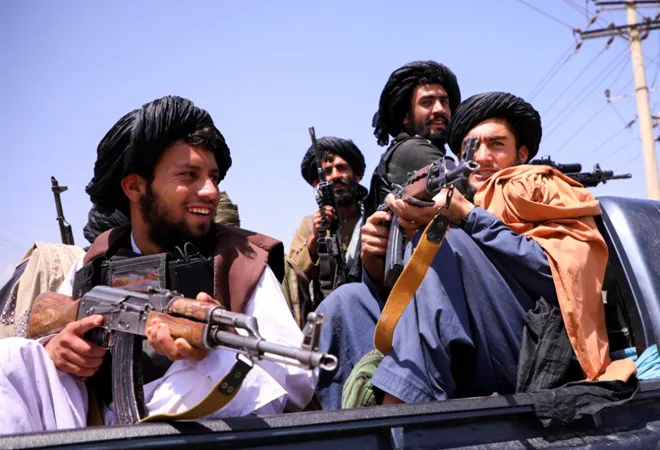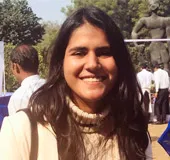
A leaked
internal memo of Afghanistan’s Institute of Diplomacy, Ministry of Foreign Affairs (MoFA) garnered significant attention last week. The memo, which was circulated internally within the offices of the Interim Taliban Administration, asks the MoFA staff familiar with English to enrol on a ‘short-term online training programme’ to be organised by the Ministry of External Affairs (MEA), India’s capacity building initiative, Indian Technical and Economic Cooperation (ITEC). On being asked about the same during his weekly
media briefing, the MEA spokesperson reiterated the mandate of the ITEC, under which people from all countries attend the online capacity-building courses, acknowledging that several Afghans, both inside and outside India, may have gotten enrolled in the same. Shortly after the news became public, there was a furore in New Delhi, especially among the Afghan students in India and those stuck in their home country who have been left hanging to dry after the Taliban’s ascent to power. While an online crash course doesn’t reflect India’s overall approach to a Taliban-controlled Afghanistan, it does bring into the spotlight New Delhi’s engagement with the group and the question of resumption of visa facilities for Afghan students stranded in their home country.
Responding to the criticism about allowing Taliban leaders to attend the course, the institute clarified that the decision about the candidates is the prerogative of the ministry; the institute has no knowledge of their political or institutional affiliations.
Conducted by the Indian Institute of Management, Kozhikode, the short-term online course on ‘Immersing with Indian thoughts: An Indian immersion program for cross-sectoral foreign delegates’ was aimed at acclimatising selected students to the Indian political and business environment. Open to students across the world, the course was primarily targeted at government officials, business leaders, and senior executives and managers. As per the institute, of the 20 people who attended classes on the first day,
18 were from Afghanistan and the remaining two were from Maldives and Thailand. Responding to the criticism about allowing Taliban leaders to attend the course, the institute clarified that the decision about the candidates is the prerogative of the ministry; the institute has no knowledge of their political or institutional affiliations. In general, for
all ITEC courses, the candidates are required to fill out a form and submit it to their nodal government agency which then forwards it to the Embassy/High Commission of India. In the memo,
Mufti Nurullah Azzam, the director general of the IoD mentions that they were informed about the course through a note verbale from the Indian ‘technical mission’ in Kabul. New Delhi completely rejected this assertion stating that India doesn’t communicate through note verbales with entities it does not recognise.
India’s engagement with Afghanistan since the fall of Kabul
Almost two years since the fall of Kabul, India’s policy towards Afghanistan has evolved. But like other countries, the quickly changing dynamics in the crisis-ridden country has made the formulation of a sustainable long-term strategy very difficult. Since the opening of its
‘technical mission’ in June last year, New Delhi has been at the forefront of providing humanitarian assistance and disaster relief to the country. From food grains to COVID vaccines to assistance during the devastating earthquake of last year, India’s actions on the ground attest to its concern for the genuine well-being of the Afghans. Historically, Indo-Afghan ties have centred on people-to-people connections, irrespective of who is in power. While this has earned New Delhi immense goodwill in the strategically important country, it has also placed it at the receiving end of scrutiny and criticism from all quarters for its failure to act quickly on the question of the stranded Afghan students.
Approximately 14,000 Afghan students are currently enrolled in India in different universities. Historically, India has been the most favourable destination for students coming from Afghanistan, with more than
60,000 Afghans having completed their studies in India in the past 16 years. In the post-Taliban reality in Kabul, keeping its security considerations in mind, New Delhi put a ner on granting visas to Afghan students, while simultaneously revoking their pre-existing visas. Since then, there have been consistent calls from the student community broaching New Delhi to act on this issue. At an event in October 2022, the External Affairs Minister asked for a level of “trust and efficiency” to develop before they could resume the visa services. But for the students, the delay has everyday ramifications, with many of them struggling to pay their fees or get a job, with returning home also no longer an option. The Indian Council of Cultural Relations (ICCR) which has been offering scholarships for the last seventeen years also didn’t grant any scholarships to Afghan students this year, with many students now scraping from their already meagre personal savings. Some have had their name cut out from their universities because of their failure to be physically present on campus, while access to online classes is also a bleak possibility with inequitable access to internet services and
exorbitant prices.
India has been the most favourable destination for students coming from Afghanistan, with more than 60,000 Afghans having completed their studies in India in the past 16 years.
It is in this context that the release of the memo in public led to questions and concerns. Notwithstanding the motivation behind the Taliban making the communication public—which was obviously done in the context of the group’s outreach to India—even a small possibility of the Taliban leaders attending the course in the first place, while well-deserved students are stuck in the crosshairs of the changing political scenario of their country led to anger and disappointment regarding India’s commitment towards the people of Afghanistan. For students, the decision was contradictory to India’s long-standing policy towards their home country.
Quest for legitimacy
Since their return to power in Afghanistan, the Taliban have been steadfastly trying to gain international legitimacy, even though their policy decisions on female education and their labour force participation, among other issues, go completely against the demands made by the West as well as some of the regional countries. The group has been reaching out to India as well. Initially, apart from asking for recognition and giving general assurances about not abetting terrorist working against India, the group made requests for the
operationalisation of commercial flights between the two countries and also implored New Delhi to change its position on the question of visas for Afghan students. While the first publicly acknowledged
meeting between New Delhi and the group happened in Doha, two weeks after the latter came to power, India has
based its limited engagement with the group on humanitarian terms. The opening of the technical mission is a case in point. The Taliban also made requests to the Indian government as well as the private sector to invest in
infrastructure projects to facilitate job opportunities for Afghans with the calls for allowing it to
station its envoy in New Delhi. But, as per the MEA, India’s position on how it views the developments in Afghanistan hasn’t changed, advising everyone to not read too much into the notification for the online course.
The Taliban also made requests to the Indian government as well as the private sector to invest in infrastructure projects to facilitate job opportunities for Afghans with the calls for allowing it to station its envoy in New Delhi.
While the course might not directly signify a change in policy or normalisation of the Taliban by India, it does hint at some sort of possible engagement with the group. But this vacillation over charting a clear-cut approach towards the country is having spillover effects on other aspects of India’s relationship with Afghanistan. A major casualty of this ambiguousness is the common people of Afghanistan. The prolonged delay in reaching a resolution on the visa issue has exacerbated the difficulties of the students and dented the goodwill that India enjoys in the country. As the
largest regional contributor of aid, the positive perception of India and its position as a favourable educational destination has also taken a blow with a relatively low number of
enquiries from prospective students for the 2022-23 session. While concerns about security and the terror threat emanating from Afghanistan are valid and should be prioritised in any policy approach taken towards the country, there should also be an effort to adopt a more measured and well-calibrated response to the question of the welfare of the people of Afghanistan. The incremental ways in which the Taliban has been dismantling the progress made in women’s access to education in the country and their increased presence in the public sphere doesn’t instil hopes for the future. In such a scenario, it is incumbent upon the international community as well as the countries of the region to keep the people at the centre of any policy considerations regarding Afghanistan.
The views expressed above belong to the author(s). ORF research and analyses now available on Telegram! Click here to access our curated content — blogs, longforms and interviews.



 A leaked
A leaked  PREV
PREV


